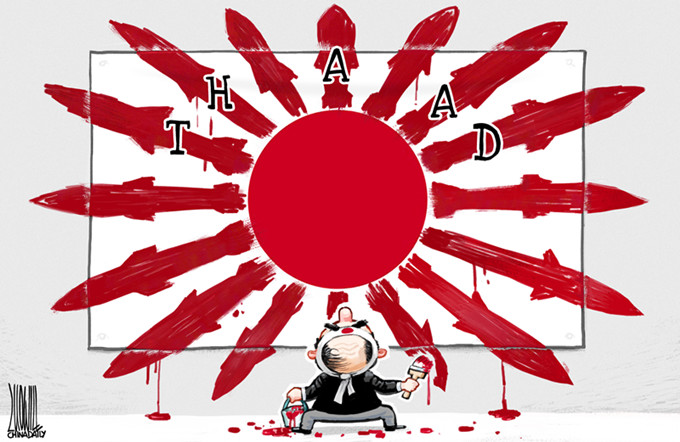US and the art of exaggeration
The annual report of the US Department of Defense on Chinese military and security development, released on May 6, is full of groundless speculations on the strength and aim of China's armed forces. In fact, it is out of tune with the development trend of Sino-US relations.
Briefing reporters at the Pentagon, David F. Helvey, US deputy assistant secretary of defense for East Asia, claimed the report was not speculative. The report has six chapters and four additional special topics on China's combat capability and its main body is 68 pages long compared with the 19 pages of the 2012 report. It covers an entire gamut of cases and data, which have been selectively included to show that China poses a military threat to other countries.
For instance, in the chapter titled "Understanding China's Strategy", the report says China employed "punitive trade policies" in response to the arrest of the captain of a Chinese fishing vessel after it collided with Japan coast guard boats in the disputed waters off the Diaoyu Islands in 2010. It also says the Philippines and Vietnam have had to bear the brunt of China's pressure in the South China Sea and misinterprets China's assertiveness in defending its sovereignty and territorial integrity as a deviation from the path of peaceful development.
The report mentions China's internal debate on its long-held principle of maintaining a low profile and alleges that Beijing may seek to play an aggressive role in regional and global issues. Even China's proposal of building a new type of power relationship has been misinterpreted as its aspiration to be regarded as a great power. And the commissioning of first and only aircraft carrier, Liaoning, the report says, is a sign of China flexing its military muscles to win regional maritime conflicts.
The report is littered with what the US claims is "evidence", to exaggerate China's military strength. For instance, it says that up to five Jin-class nuclear-powered, ballistic missile-carrying submarines may enter the services of the Chinese navy to give it the first credible sea-based nuclear deterrent, which is nothing but a baseless guess.
Compared with previous US annual reports on China's military, the latest one has more information about China's cyber capabilities and activities. It accuses China of using companies, research institutes and computer network operations to collect sensitive information and acquire export-controlling technology. But the report fails to furnish any concrete proof to this effect.
The report is actually an attempt to misguide international opinion against China to serve the US' strategic interests, an art that it mastered decades ago. The US used to release annual reports on the military strength of the former Soviet Union during the Cold War, and earlier this year it issued a report on the military of the Democratic People's Republic of Korea for the first time amid escalating tensions on the Korean Peninsula.

























